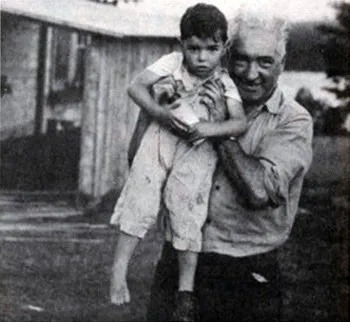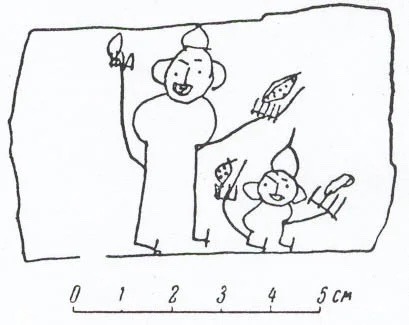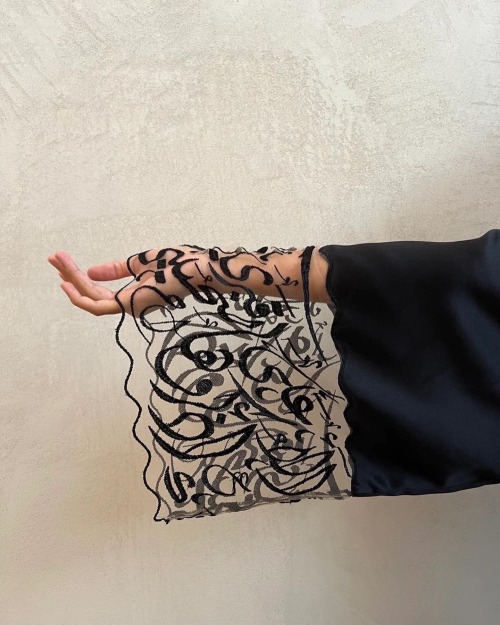
she/her ▪︎ my mind; little organization
177 posts
Latest Posts by surmayah - Page 2
I have chanted Maa Durga’s name with the same love and reverence as I have made Dua to Allah and bowed before Waheguru. I worship the divine, not the name
The Mughals were conquerors, not colonizers, and equating them to the British is ahistorical at best. The Mughals settled in India, made it their home, and integrated into its cultural and political fabric, even if their rule was far from perfect. They built monuments like the Taj Mahal and Red Fort, not as gifts to the locals, but as symbols of their power—just as Hindu kings built temples and palaces for their own glory. Yes, Aurangzeb reimposed the jizya and destroyed temples, but let’s not pretend this was unique to the Mughals; Hindu rulers also destroyed rival religious sites when it suited their political agendas. The British, however, were true colonizers—they exploited India’s resources to enrich themselves, treated Indians as subhuman, and left the economy in ruins. The Mughals may have been flawed rulers, but they were part of India’s story; the British were extractive outsiders who never saw India as anything more than a cash cow. To conflate the two is to ignore the nuances of history and reduce it to a simplistic, politically convenient narrative.
Not another post whining about why “mUgHaLs WeRe nOt cOlOnizErs” like girl, they were literally foreign invaders who forced you to speak their language, broke your temples, tried eradicating your culture and collected zizya taxes motivated by religious bigotry in hopes of forcing your people to convert! At least have some shame and consideration for your ancestors.
The assertion that the Mughals were colonizers is a misapplication of the term, one that conflates conquest with colonialism. Colonialism, as defined, involves the systematic exploitation of a territory for the benefit of a distant metropole, often accompanied by the imposition of foreign cultural and political structures while maintaining a clear separation between the colonizer and the colonized. The Mughals, however, do not fit this mold. They were not extractive outsiders but rather rulers who embedded themselves into the fabric of India, becoming part of its history rather than remaining external exploiters.
Let’s begin with intent. The Mughals did not arrive in India with the goal of extracting wealth to enrich a distant homeland. Unlike the British, who treated India as a resource colony to fuel their industrial revolution, the Mughals made India their home. Babur, the founder of the dynasty, may have been a conqueror, but his descendants—Akbar, Jahangir, Shah Jahan, and even Aurangzeb—saw themselves as Indian rulers. They built their capital cities in India, patronized Indian arts, and integrated themselves into the subcontinent’s political and cultural landscape. This is not colonialism; it is empire-building, a process that has been a recurring theme in Indian history long before the Mughals arrived.
On the matter of cultural imposition, the Mughals were far more syncretic than colonial. Akbar’s policies, in particular, stand out as evidence of this. He abolished the jizya tax on non-Muslims, married Rajput princesses, and incorporated Hindu traditions into his court. His Din-i Ilahi, though short-lived, was an attempt to create a unifying spiritual framework that drew from multiple faiths. While the Mughals did impose Persian as the court language, they did not seek to erase Indian languages or traditions. Persian became a lingua franca, much like English did later, but it coexisted with regional languages and cultures. This is a far cry from the British, who sought to replace Indian systems with their own, often dismissing local traditions as backward.
Economically, the Mughals cannot be equated with colonizers. While it is true that wealth was concentrated in the hands of the elite—a feature common to most pre-modern empires—the Mughals reinvested their wealth in India. They built monumental architecture, funded arts and literature, and developed infrastructure. The British, by contrast, extracted wealth on an unprecedented scale, draining India’s resources to fuel their own industrial growth. The decline of India’s share of global GDP from 25% under the Mughals to 3.4% under the British is a stark reminder of this difference. The Mughals may not have created an egalitarian society, but they did not impoverish India for the benefit of a foreign power.
As for governance, the Mughals were far more inclusive than colonial powers. Akbar’s court, while dominated by Turani and Irani nobles, included Indian Hindus and Muslims. This was a significant departure from the British, who excluded Indians from positions of real power until the very end of their rule. The Mughals’ administrative system, the mansabdari, was open to Indians, and many Rajputs and Marathas rose to prominence within it. The British, on the other hand, maintained a rigid racial hierarchy, treating Indians as subjects rather than partners.
Finally, let’s address the cultural legacy. The Mughals are remembered not as foreign occupiers but as integral to India’s history. Their architecture, from the Taj Mahal to the Red Fort, is celebrated as part of India’s heritage. Their contributions to art, literature, and cuisine are woven into the fabric of Indian culture. The British, by contrast, left behind a legacy of division and exploitation. Their railways and administrative systems, while significant, were designed to serve their own interests, not India’s.
In conclusion, to label the Mughals as colonizers is to misunderstand both their role in Indian history and the nature of colonialism itself. They were conquerors, yes, but they were also builders, patrons, and, ultimately, participants in India’s story. The British, by contrast, were extractive outsiders who never saw India as anything more than a colony. The Mughals may not have been perfect rulers, but they were not colonizers. To conflate the two is to oversimplify a complex history—one that deserves to be understood on its own terms.
Not another post whining about why “mUgHaLs WeRe nOt cOlOnizErs” like girl, they were literally foreign invaders who forced you to speak their language, broke your temples, tried eradicating your culture and collected zizya taxes motivated by religious bigotry in hopes of forcing your people to convert! At least have some shame and consideration for your ancestors.
And here children, is a prime example of learning history from social media. The answer to this lies in the very definition of "colonialism", quite a contrary to the mughal rule in India.
Not another post whining about why “mUgHaLs WeRe nOt cOlOnizErs” like girl, they were literally foreign invaders who forced you to speak their language, broke your temples, tried eradicating your culture and collected zizya taxes motivated by religious bigotry in hopes of forcing your people to convert! At least have some shame and consideration for your ancestors.
my pronouns are sweet/heart
the least you can do is be kind!!! we're all horrible human beings love is the only hope out there
started the first day of ramadan crying hello everyone how are you
I dream of living in a small one bedroom apartment with my husband, with a huge white couch that isn't really practical, with baby blue and yellow accents everywhere,and a balcony I rarely use becuse it hangs over the train line, which is fine becuse I use it to grab groceries from the farmers market and we cook our favourite food together and invite friends over for themed movie and game nights
cause of death longing i presume









just some dad appreciation
Father, Where Do the Wild Swans Go? - Ludvig Holstein | The Passing of Shah Jahan - Abanindranath Tagore | Father and Daughter - Amanda Strand | Book of Dreams - Peter Reich | Ferris Bueller’s Day Off | Connect the Dots (Saga of Frank Sinatra) - Car Seat Headrest | Me and My Dad - Onfim (ancient child)
"how to prevent smile lines" there are a thousand more important things to do with your time than postpone evidence of life's joy on your face
You are so young, all still lies ahead of you, and I should like to ask you, as best I can, dear Sir, to be patient towards all that is unresolved in your heart and to try to love the questions themselves like locked rooms, like books written in a foreign tongue. Do not now strive to uncover answers: they cannot be given you because you have not been able to live them. And what matters is to live everything. Live the questions for now.
—Rainer Maria Rilke, Letters to a Young Poet
What are your favorite Arabic poems, if you have any?
These are some of my favorites:
An Ocean Without Shore, Ibn ‘Arabi
Fragment from Al-Buhturi’s Wolf
From the Luzumiyat of al-Ma’arri
From the Diwan of al-Ma’arri
Reality, Rabia al-Basri
Love, Rabia al-Basri
The Enchanter of Dust: Psalm, Adonis
The Wound, Adonis
I Pray Behind My Shadow, Bahija Massri Adelbi
The Spirit Bows to the Will of Love, Munir Mezyed
The Manner of Sand, Mahmood al-Braikan
Exculpation, Khalil Mutran
Revolt Against the Sun, Nazik al-Mala’ika
Myths, Nazik al-Mala’ika
Who am I?, Nazik al-Mala’ika
A Stranger at the Gulf, Badr Shakir al-Sayyab
An Alphabetical Formation, Faraj Bayraqdar
A couple of fragments from Sanieh Salh
Sorrows of the Black City, Muhammad al-Fayturi
Shadows, Wadih Sa’adah
The Strange Grief, al-Shabbi
A Storm in the Dark, al-Shabbi
A Body, Al-Saddiq al-Raddi
Annihilation, Muhammad Afifi Matar
Fragments from ‘Quartet of Joy’, Muhammad Affifi Matar
Mural, Mahmoud Darwish
We Will Choose Sophocles, Mahmoud Darwish
Clouds, Ounsi el-Hajj
Smoke Bloom, Nadia Anjuman
Boat to Lesbos, Nourri al-Jarrah
Your body is my map, Nizar Qabbani
i hatee it how i cannot be at university for the rest of my life learning about my niche interests that are so special to me. Instead i have to settle for less and cater to a job that doesn't serve any meaning to me
i will not login or register










With you
fake idgafer. i saw tht haunted look in ur eyes


May Sarton, The House by the Sea
Sorry to break it to you but you literally have to face your fears and slaughter them. Otherwise you will live a small life that you do not want. You literally have to view your biggest fears and attack them head on. You have to fall into the abyss to find your way out. The easy path does not exist. There is no get out of jail free card. You have to allow yourself to die a spiritual death over and over again in order to reinvent yourself into the person you are actually supposed to be. And you have to be painfully honest with yourself and the people around you. It’s horrible but it’s truly the only way.
just going to generally love more in 2025








‘Love is the one thing that we’re capable of perceiving that transcends dimensions of time and space.’
“Eulogy from a Physicist” by Aaron Freeman, with quotes from Interstellar by Christopher Nolan, and images from NASA, Interstellar, Getty, Petrichara, and Reuters.
1- NASA: GOODS-South.
2- NASA: NGC 1850.
3- NASA: Iberian Peninsula.
4- Christopher Nolan: Interstellar.
5- NASA: From the Earth to the Moon.
6- Hannah La Folette Ryan: Subway Hands.
7- Adams Evans: Heart Nebula.
8- NASA: Exploring the Antennae.
9- NASA: Crescent Moon from the International Space Station.
10- Petrichara.
11- Getty Images.
12- NASA: SMACS 0723.
13- Reuters
i love re-consuming media i used to love when i was younger. like wow! child me still is in me i am holding her hand and keeping her safe and doing her favorite things with her!!!!
It's december and i miss you yet again

hadal ‘love language' robe
Embroidered onto the sleeve is an Arabic love poem by Palestinian poet Mahmoud Darwish. It reads: قالوا: تموت بها حبـاًً، فقلـت لهـم ألا اذكروها علـى قبـري فتحيينـي English translation: They asked “Do you love her to death?” I said “Speak of her over my grave and watch how she brings me back to life.” All proceeds from Hadal’s ‘Love Language’ pieces will be donated to Palestinian aid organisations.


